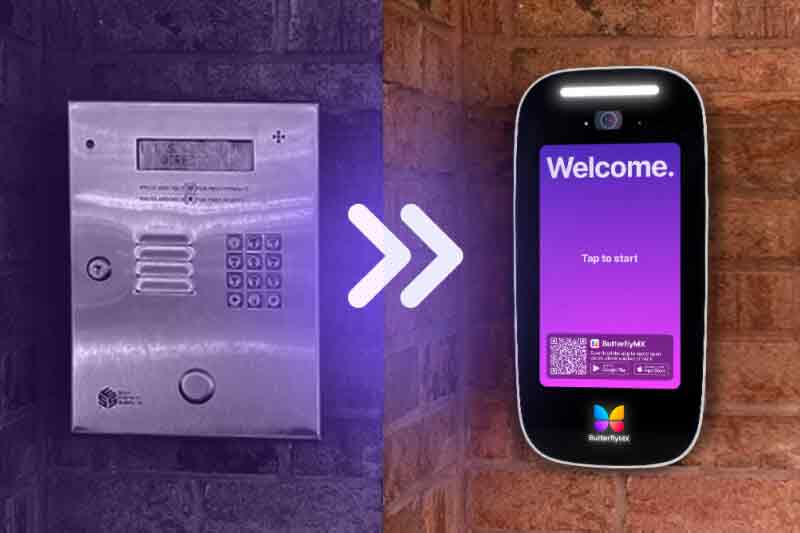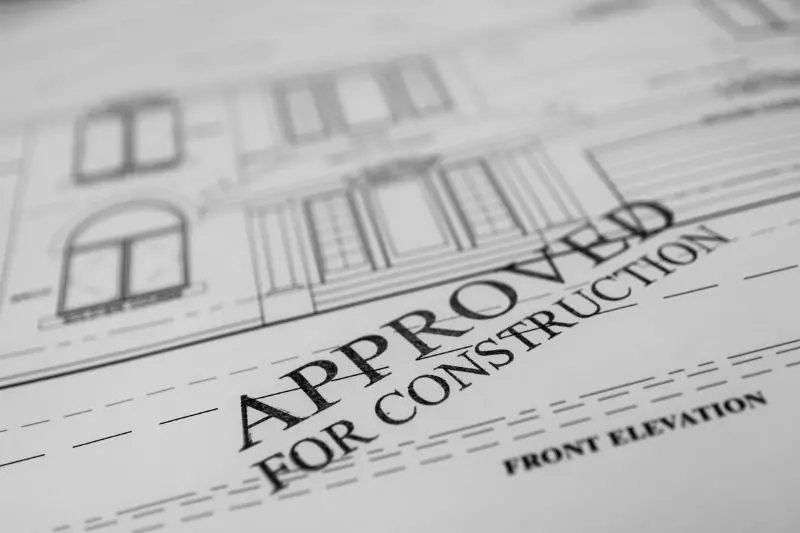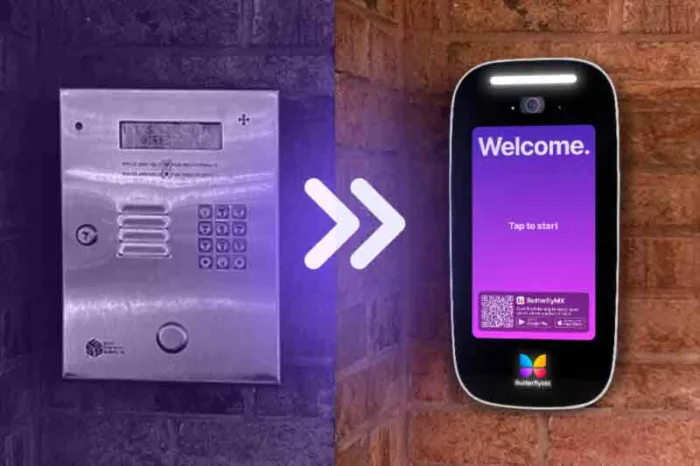Key takeaways
- Real estate development is the process of improving a property by building or improving structures.
- A real estate developer is an individual or company who improves property by overseeing feasibility, design, planning, and construction before selling.
- The benefits of real estate development include a potentially high return on investment, control over your investment, a positive impact on the local community, diversification of your portfolio, and participation in a relatively stable market.
- Risks associated with property development include barriers to entry, financial risks, market fluctuations, construction delays, and regulatory planning challenges.
- To get started as a real estate developer, you should seek an education, obtain your real estate license, get hands-on experience, build a network of professionals, find capital for your first development, and continue to educate yourself.

Real estate development involves overcoming constant challenges that threaten a potentially lucrative payout. But when equipped with the right resources and knowledge, developers can reduce risks and pave the way toward a rewarding career.
So, if you’re looking to become a developer, this blog will outline everything you need to get started.
Firstly, this guide provides an overview of what real estate development entails and the roles and responsibilities of developers within the industry. Then, you’ll discover the benefits and risks of developing real estate before learning — most importantly — how to become a real estate developer.
This guide details:
- What is real estate development?
- What is a real estate developer?
- Benefits and risks in real estate development
- How to start developing real estate
What is real estate development?
Real estate development is the process of building or renovating multifamily structures to increase the property’s value.
Property development can begin with either raw land or existing buildings. Regardless, the property must be transformed into functioning spaces used across various industries, from residential and multifamily buildings to commercial and industrial complexes.
After property development is completed, it’s typically sold to a real estate investor. However, if the property is a single-family home, a consumer typically purchases it directly.
What are the steps in real estate development?
Real estate development consists of three major steps before the property is sold — all of which play a small role in the large scope of the real estate cycle.
The three steps in property development are:
- Pre-development. Analyze every aspect of your property to reduce risk going forward. Unfortunately, this step in the development process is the riskiest because it concerns many unknown factors. Not to mention, pre-development can take months and even years to complete. Above all, construction-related planning is the most time-consuming and challenging task to overcome, as it often faces delays due to permit and plan approvals.
- Construction. Track building progress by working closely with the construction team. Although this phase is significantly less risky, it isn’t void of potential pitfalls. Before finalizing the construction phase, you’ll need a certificate of occupancy from the municipality, meaning it’s ready for operation.
- Operation. Manage the operations of your property or sell it to a buyer. If you haven’t found a buyer yet, you’ll need to assist with marketing and leasing duties to help stabilize the property.
Residential vs. commercial real estate development
There are two primary types of real estate development: residential and commercial.
Residential real estate development handles single-family and multifamily development. If the property is a house, it’s most often sold directly to the consumer. As for multifamily property development, these projects encompass gated communities, apartments, high-rises, and other residential developments. In that case, the buyer is an investor.
On the other hand, commercial real estate development encompasses all types of properties, including those not mentioned above.
More specifically, commercial real estate includes:
- Industrial facilities
- Shopping malls
- Restaurants and bars
- Hotels
- Office buildings
Learn how the real estate cycle works:
What is a real estate developer?
A real estate developer is a person or company that manages the building or improvement of a property. Improvements typically include constructing new buildings on raw land or remodeling the existing structures. In any case, developers may purchase the land themselves or work closely with an owner to oversee development.
What does a developer do in real estate?
Real estate developers oversee a property’s construction and improvement, from its purchase to when it operates and is then sold. So, developers will have a wide range of tasks on any given day.
A property developer’s responsibilities include, but are not limited to:
- Acquiring land
- Land contracts
- Finding contractors
- Building design and construction
- Finance modeling and analysis
- Feasibility studies
- Operation management
- Finding a buyer
How do developers make money in real estate?
Real estate development companies make money by selling the property for a higher price than what it cost to construct.
While selling property is the primary way developers make money, it’s not the only way. Not all developers end up selling their properties. Instead, they may take over the property’s operations and, in doing so, make money. In other words, developers collect rent from their tenants or earn from the goods or services sold there.
How much does a real estate developer make?
The average annual salary of a property developer in the United States is approximately $180,000.
However, depending on certain factors, real estate developers could make anywhere from $104,000 to more than $300,000 per year.
Factors that may affect a developer’s salary include:
- Experience
- Specific role
- Cash bonuses
- Commission
- Tips
- Profit sharing
- Location

Benefits and risks in real estate development
The prospect of substantial financial gains through real estate development draws in many people. And while there are significant benefits to reap, it is undeniable that developers face numerous risks. Therefore, you must be aware of the potential risks associated with developing properties, in addition to the numerous rewards.
Benefits
As a property developer, you can benefit from:
- High profit. Earn a potentially higher return on investment after completing your property’s development. It’s essential to note that a return on investment is not always guaranteed, but it’s more likely when conducting thorough research and identifying the right buyer.
- Investment control. As the developer, you have the power to manage every aspect of the real estate development process. You are responsible for overseeing every step of the development process, from acquisition and design to marketing and analysis. As a result, you influence the return on investment.
- Impact the local community. Invigorate the local community by introducing a property that would benefit from. By developing apartments, workforce housing, and spaces for small businesses, you’re adding jobs to the local economy while enhancing the community’s living experience.
- Stability. Having peace of mind when developing real estate is more beneficial than when working in other markets, such as stocks. Real estate is known to remain stable for longer than other investment areas, meaning you may experience fewer risks. Although, risks are always present, and the real estate industry is constantly changing.
- Diverse portfolio. Reduce the risks of volatility in other investments by diversifying your portfolio with real estate.
Risks
Be wary of the risks associated with real estate development, such as:
- Barriers to entry. Entering the property development market is challenging, as there is no definitive path. Therefore, you may find it challenging to determine where to start or what type of education to pursue. Not to mention, first-time developers overlook the upfront costs associated with development, which present serious challenges.
- Financial risks. Securing sufficient funding for your property development is a difficult hurdle. In addition to upfront costs, commercial or multifamily construction can take months and even years, meaning the price of your project can rise steeply.
- Market fluctuations. Prepare yourself for inevitable market fluctuations in demand, interest rates, and other factors. All of these aspects will impact how your property will sell and the costs associated with completing the project.
- Construction progress. Plan for construction delays from bad weather, labor shortages, failed inspections, and more. Delays are common with construction, so it’s best to prepare to lessen their financial impact.
- Planning and regulatory risks. Ready yourself for complex regulations and planning from local municipalities. Obtaining construction permits and adhering to building codes are essential for constructing quality structures, but expect delays in the development process.
How to get started as a real estate developer
Breaking into the real estate industry isn’t easy, especially as an aspiring developer, but there are steps you can take to improve your chances of becoming a real estate developer.
Here are some tips and requirements on how to become a real estate developer:
- Educate yourself
- Obtain a real estate license
- Get hands-on experience
- Build a network
- Find capital
- Continue learning
Educate yourself
A college degree is not required to become a developer, but it will provide a solid foundation. While there is no specific degree for real estate developers, most developers typically receive diplomas in business. Moreover, you could obtain a master’s degree in real estate for further education, but it’s not necessary. Regardless, you must know how to navigate and perform the duties of a developer appropriately.
Obtain a real estate license.
The only requirement to become a property developer is a real estate license. In fact, most states require developers to have a license, so check your state’s qualifications before moving forward. Additionally, acquiring a real estate license requires you to sign up for a certification course and pass a test.
Get hands-on experience
Even before you start learning or get a license, you can start getting hands-on experience in the real estate industry. By exposing yourself to the real estate industry early, you’ll jumpstart your career and begin networking with professionals in your field. Consider an internship or volunteer opportunity with a real estate company as a starting point.
Build a network
The real estate industry is built upon strong relationships, which is why it’s essential to network as early as possible. As you establish relationships, people earn your trust, which eventually leads to new development avenues. Thus, your property development negotiations are easier with those you know well.
Find capital
If you don’t have enough capital to finance your project, you’ll need to finance it with a loan or work alongside partners. So, ensure you work with someone you trust and can depend on throughout the venture.
Continue learning
Above all, it’s crucial you continue to learn and educate yourself throughout your career. Stay up-to-date on the latest technologies, development trends, and market changes, so you can adapt effectively. In turn, you’ll improve your chances of investing in successful development projects.







